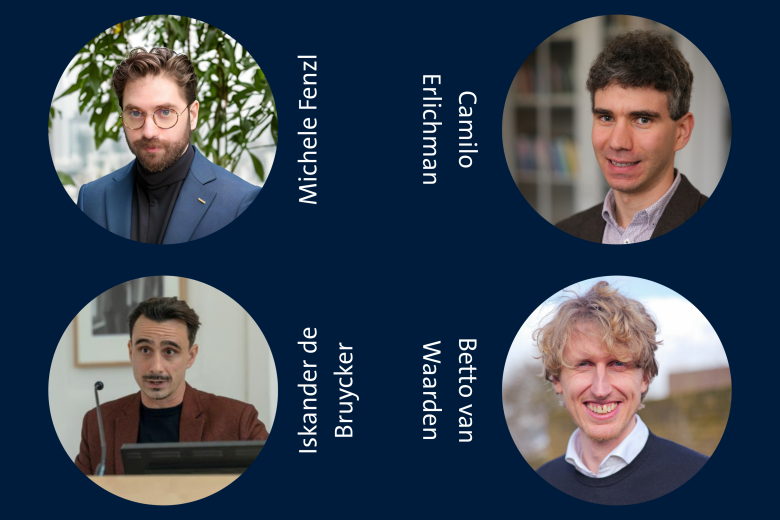Maastricht University enrolment remains stable
For the second consecutive year, the total number of students at Maastricht University has remained stable, standing at approximately 23,000. A slight increase in the number of new students – the intake – of almost 3% ‘compensates’ for last year's comparable decline.
Contrary to the national trend, the percentage of students from the Netherlands among new bachelor's students is rising slightly. At the same time, UM remains a university with a strong Euregional profile: the number of new students from the Euregio (the area within a 100-kilometre radius from Maastricht) is also rising slightly. This year, almost 60% of all students are from the Netherlands or the surrounding Euregio.
This is evident from UM’s provisional enrolment data. Provisional, because the exact number of students will only be clear at the beginning of 2026. Shifts will still take place in the first months of the academic year. The current figures are therefore used with some reservations and only in broad outline.
The provisional figures are in line with expectations and with UM policy, which takes into account what the city can accommodate, including student housing. In addition, the provisional figures are also in line with the agreements made jointly by Dutch universities to achieve a good balance in internationalisation, taking regional differences into account.
Such differences relate to the regional labour market and also to the profile of the university and the area in which it is established. For UM, this is a Euregional and European profile. This explains the high proportion of students from the EU. UM has a relatively modest number of students from outside Europe, accounting for approximately 7% of all UM students this year.
It is important to be aware of regional differences and to make use of regional opportunities. This applies not only to UM, but also to other educational institutions in Limburg and to every person and all institutions committed to a prosperous and healthy province. To this end, the number of students and, consequently, the range of programmes on offer in Limburg must remain at the current level. There are still significant shortages in the labour market. Training sufficient talent, including international talent, remains essential.
Also read
-
Four FASoS researchers awarded NWO XS grants
How do lobbyists use disinformation to sway policymakers? Who gets to shape the historical narrative of occupation and violence? Does growing inequality change the way citizens think about politics? And how have politicians defended “truth” across a century of media revolutions?
-
Reducing the Digital Divide: Empowering Students to Train, Evaluate, and Use AI Text Models
The Maastricht Law and Tech Lab, together with the Brightlands Institute for Smart Society (BISS), obtained a € 100.000 a Comenius Senior Teaching Fellow grant.
-
Green school playgrounds boost concentration and wellbeing
Children at schools with green playgrounds are better able to concentrate and display more social behaviour. This is the conclusion of a follow-up study within the long-running project The Healthy Primary School of the Future .